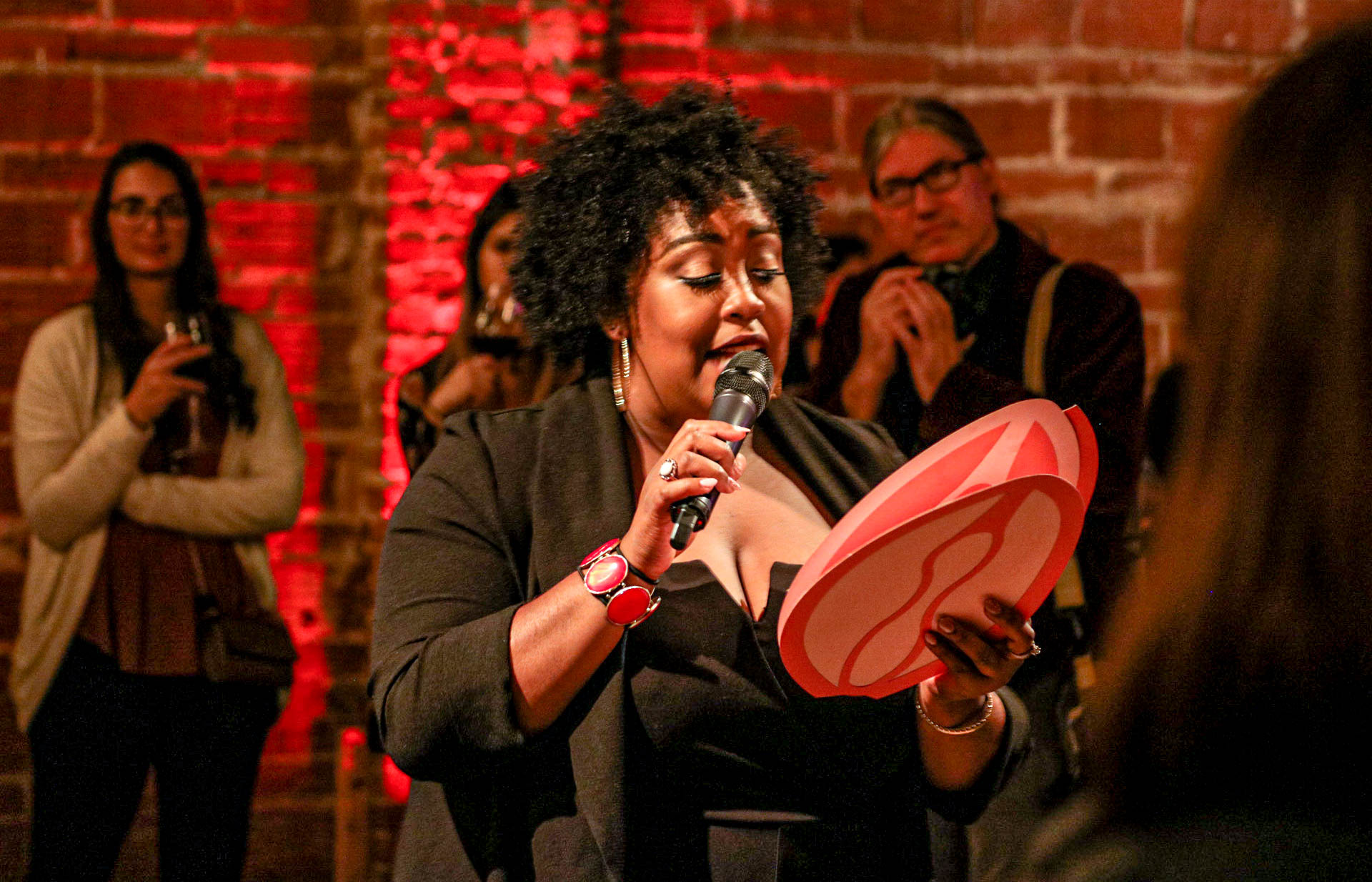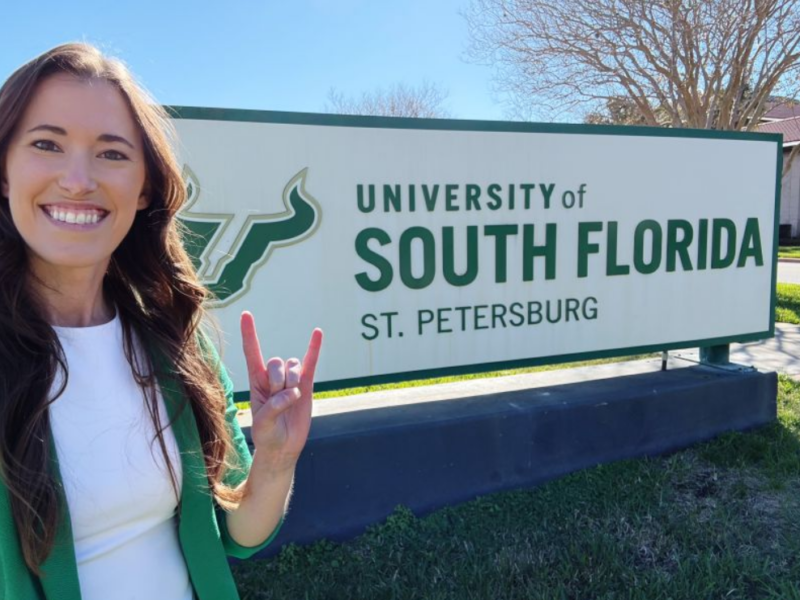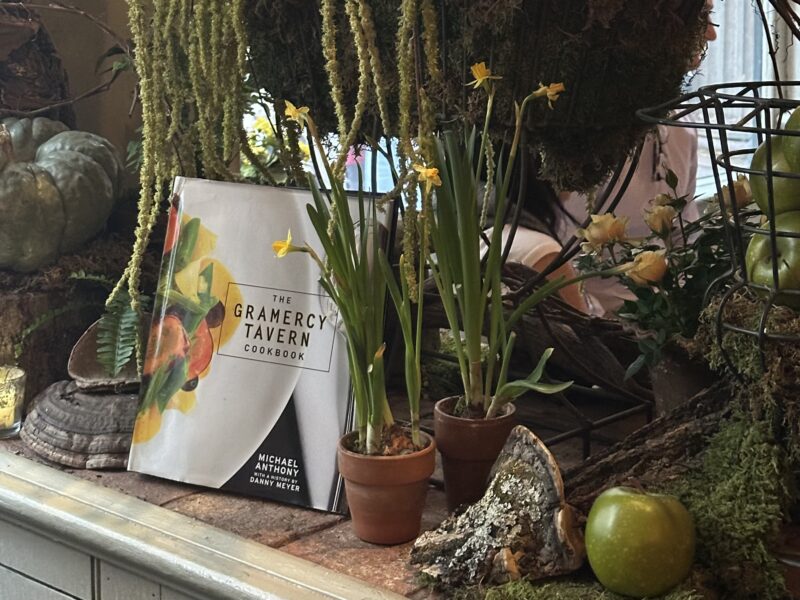Pictured above: Ariel Blue, an actor from Sarasota, speaks at the afterparty for The Vagina Monologues on March 6.
Story and photos by Carrie Pinkard
“Feed me!”
“Too hard…”
“Slow down!”
These are the words women’s vaginas would say if they could talk. At least according to Eve Ensler, author of “The Vagina Monologues.”
The play came to St. Petersburg’s Nova 535 on March 6, and it was put on by a cast of volunteers. All of the proceeds went toward local women’s health centers, like Planned Parenthood and the St. Petersburg Free Clinic.
“The Vagina Monologues” is composed of snippets, where women from different backgrounds stand up and speak boldly about their bodies.
It began with an older woman who said she hadn’t visited her vagina since 1953.
“It’s very damp, clammy,” she said. “You don’t want to go down there. Trust me.”
The woman talked about how distant she feels from her “down there” in her old age— how it’s a place she no longer travels. She told the audience about getting cancer and having her uterus removed, and how she never thought much of her vagina after that.
Another woman talked about how she learned to love her vagina at a vagina workshop.
She had only ever had an orgasm by accident. She had them while riding a bike or swimming past a jet stream or straddling a galloping horse.
At the workshop, she looked at her vagina with a hand mirror for the first time in her life.
“I found it quite unsettling at first, my vagina,” she said. “Like the first time you see a fish cut open, and you discover this other bloody complex world inside, right under the skin.
“It was so raw, so red, so fresh.”
She learned to accept that her vagina was a part of her, inseparable from her being. Once she did that, they quickly became friends.
The middle of the play drew attention to female genital mutilation, which takes place in 29 countries around the world. Between today and 2050, if trends continue, 200 million girls will experience female genital mutilation. The practice usually occurs when girls are between the ages of 4 and 14 and results in extreme agony and long term health issues.
A Bosnian woman spoke about how her vagina was her village. She described it as a “long, wet water village” and said it was her hometown. That is, until she was attacked by men, who she said took seven days taking turns raping her.
“They invaded it. Butchered it and burned it down,” she said. “I do not touch now. Do not visit. I live some place else now. I don’t know where that is.”
The play is designed to get you thinking about the human vagina –– how it expands, contracts, bleeds, receives and gives life. It also explores how marginalized the body part is, and how society speaks about it only in whispers.
“We forget the vagina. All of us. What else would explain our lack of awe, our lack of reverence?” one of the characters who witnessed the birth of her grandchild said.
She said she watched as the mother’s vagina turned from a small hole to an “archeological tunnel.” She watched as it turned colors from pink to dark red to a bruised black and blue. She watched, and a baby’s head appeared.
“The Vagina Monologues” sparked the beginning of the V-Day movement, an international activist movement held annually on Feb. 14 to end violence against women. The play has been put on around the world since 1998.
This year, the V-Day theme was “Raise the Vibration.”
“To me, raising the vibration is about not being afraid to raise your voice. To be heard. To be seen,” director Samantha Stevens wrote on the back of the program.
After the play ended, the after-party began. Local singers, comedians, poets and burlesque dancers performed for the crowd. Outside, a drum circle formed, and a dancer twirled batons lit on fire.
It was a night of celebration and camaraderie for women of all races, sexualities and orientations.
A night that made you think about the value of a vagina.



